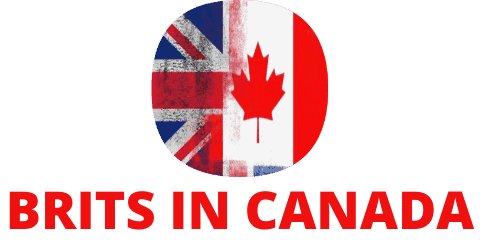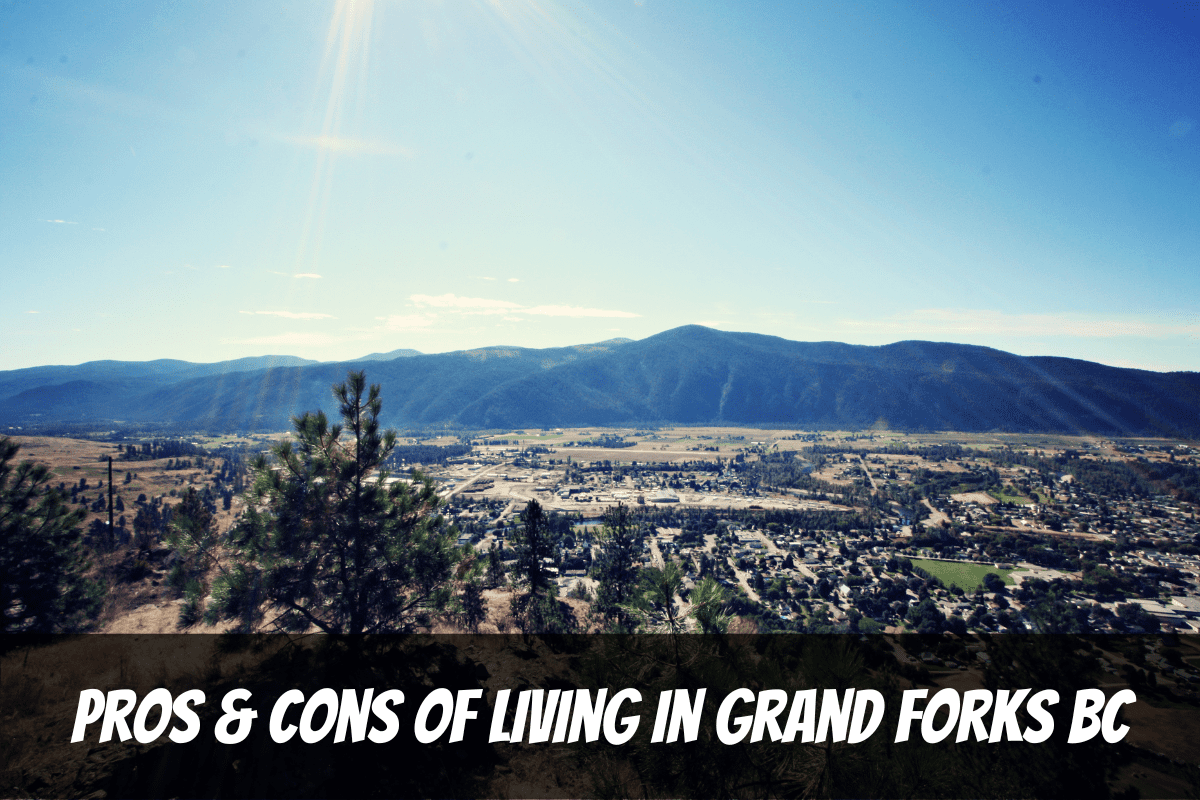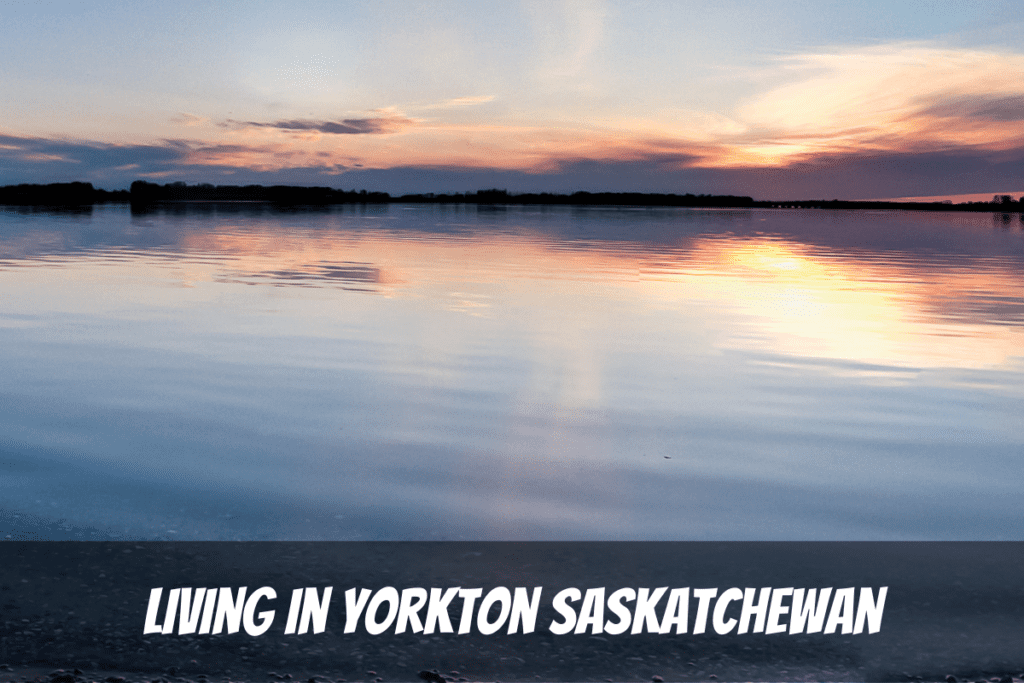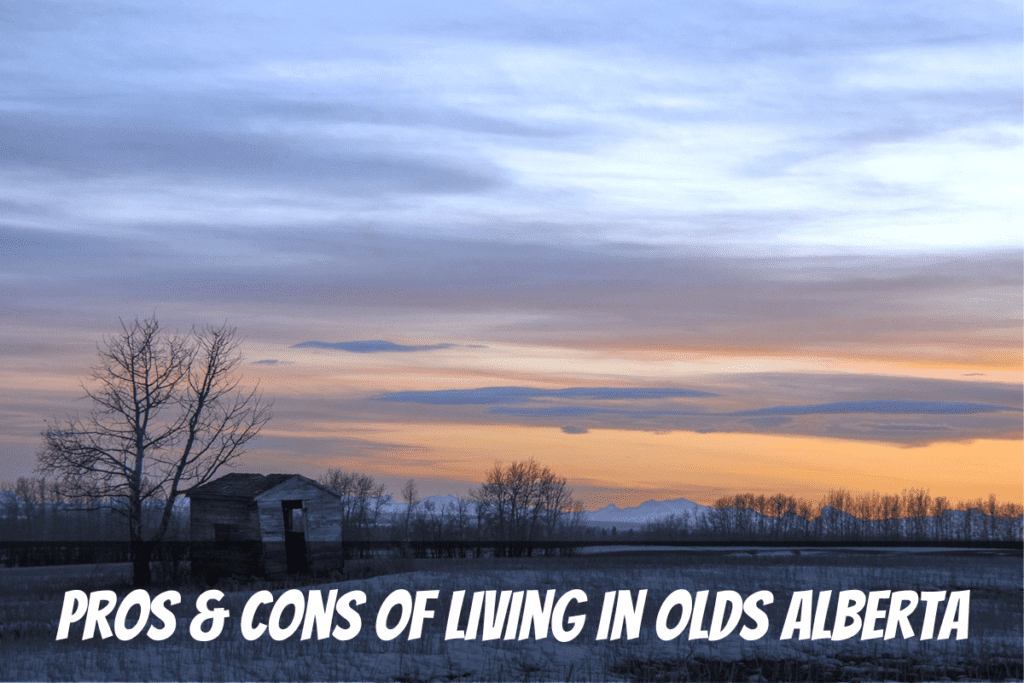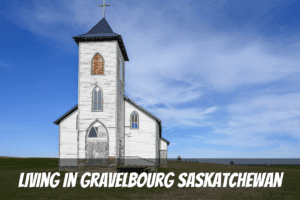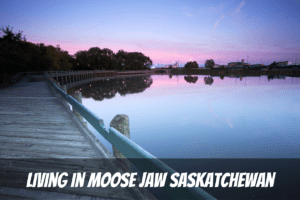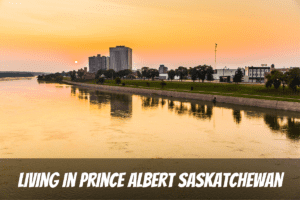Are you planning a move to British Columbia but looking for a quieter location away from the big cities? If so, you may be interested in living in Grand Forks, BC, just one of the many attractive small towns in BC.
Grand Forks is a small riverside town in south-central BC. This beautiful, peaceful location has tree-lined streets and a historic town centre. A dry, mild climate, low property costs and low crime rates all add up to an excellent quality of life.
We will give you all the critical information about living in Grand Forks, BC, and an unbiased view of the pros and cons of living in this town.
Living In Grand Forks, BC – The Facts
Here are some key facts about this riverside town for anyone interested in living in Grand Forks, BC.
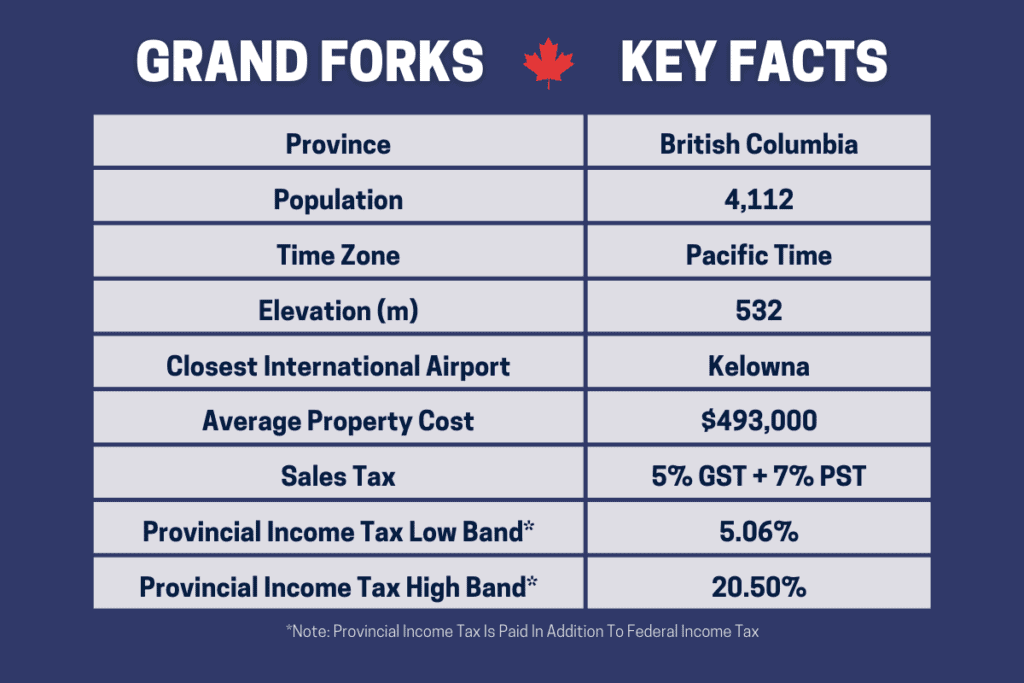
Where Is Grand Forks BC?
Grand Forks lies in south-central BC, very close to the US border. The town sits in a broad valley between the Kootenays and the Okanagan Valley.
The closest major centre to Grand Forks in Canada is Kelowna, almost a 3-hour drive to the northwest. Spokane in the US is a similar distance away from the South.
Kelowna is the closest international airport, although international destinations are limited to a handful in the US and Mexico. For a greater choice of international destinations, Calgary is around a 4.5-hour drive east of Grand Forks.
What Is The Population Of Grand Forks in 2023?
The population of Grand Forks in 2023 is around 4,316, based on the latest government of BC estimates released at the start of the year.
The town has seen marginal growth in recent years. The latest federal census data (released in 2022) showed a population of 4,112, representing a growth in the population of Grand Forks of 1.6% between 2016 and 2021.
The average age of the population is 50.9, which is significantly higher than the national average of 41.9, but typical of the south Kootenay region.
The population of Grand Forks is predominantly white and English-speaking, and according to the latest census data, visible minorities account for around 6% of the population.
The largest minority groups living in Grand Forks are South Asian and Filipino, and these two groups account for just over half of the visible minority population.
What Is The Weather In Grand Forks, BC, Like?
Most of Canada experiences cold, harsh winters with pleasant, moderately hot summers. However, BC’s coastal location and mountain ranges mean its climate isn’t typical of Canada.
You will find significant variations in the climate even within the province. Overall the BC weather is milder and wetter than the rest of Canada. The south coast has the most temperate winters in Canada and warm, pleasant summers, while the southern interior has very short winters with long, dry, hot summers.
The weather in Grand Forks is one of its attractions; it has a relatively mild, dry and sunny climate. The average January low is minus 7 Degrees C, while the average July high is 28 Degrees C. The town has a total annual precipitation of 524 mm, of which just 94 mm falls as snow.
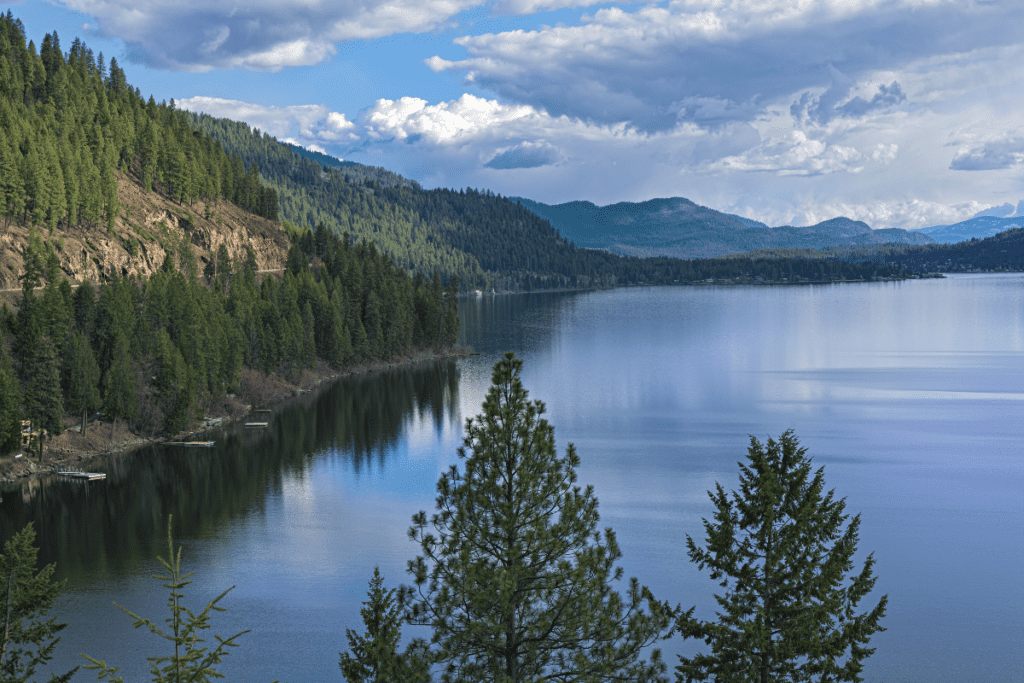
What Is The Cost of Living In Grand Forks Like?
Most immigrants find the cost of living high in Canada, and BC is one of the more expensive provinces. House prices in BC are around 50% higher than Canadian averages.
Rural areas are cheaper but still subject to higher provincial taxes. Sales tax is 12% on most goods (5% GST plus 7% PST) compared to 5% in provinces such as Alberta, and the top income tax rate is relatively high.
Despite the high BC taxes, Grand Forks is still a relatively cheap place to live. This is mainly due to low property costs; the average price of real estate in Grand Forks is around $493,000, more than 20% lower than the national average.
What Is The Grand Forks, BC Economy Based On?
The primary industries in Grand Forks are logging, agriculture, some manufacturing and tourism. While Grand Forks isn’t a major tourist attraction, it is just 20 minutes from Christina Lake, a popular holiday home destination. Grand Forks is also close to the very popular Okanagan region.
Is Grand Forks A Safe Place To Live?
Canada is one of the safest countries in the world to live in. Crime rates are low, and the country always features near the top of the annual Global Peace Index rankings.
Canada, Quebec, Ontario and the Maritime provinces have the lowest crime rates, while the highest in the territories. BC crime rates are above average for Canada.
Grand Forks is a very safe place to live. Crime rates are lower than average for British Columbia, and violent crime rates are extremely low.
Are You Planning A Move To Canada?
Are you wondering whether to make the move and have endless questions?
Do you want to know how much a correction officer earns, what the best neighbourhoods in Surrey, BC, are, or if Courtenay, BC, is a good place to live?
We have the answers to these and many more questions.
What Are The Schools In Grand Forks, BC, Like?
Canada has a strong and publicly-funded education system, which consistently ranks as one of the best in the world. Education is administered at a provincial level, and BC has a reputation for excellent education within Canada.
Grand Forks has two elementary schools and one secondary school; between them, they cover kindergarten to grade 12.
Unfortunately, dual-track French immersion programs aren’t available in Grand Forks.
What Is The Healthcare In Grand Forks, BC Like?
Canada has an excellent publicly-funded healthcare system which covers “medically necessary” care. Generally, hospital and doctor visits are covered, while other types of care, such as dental, optical and prescriptions, are funded for certain groups of people.
In Canada, healthcare is administered at a provincial level, so anyone living in Grand Forks, BC, would be covered through BC Healthcare.
You should be aware that there is currently a shortage of family doctors in much of Canada, and it can be difficult to find clinics taking on new patients. This is especially true of the smaller towns and cities.
Grand Forks has its hospital (Boundary District Hospital) with a wide range of inpatient and outpatient facilities and 24/7 emergency care. However, the hospital has temporarily closed its inpatient facility due to insufficient staffing.
The closest alternative hospital is Kootenay Boundary Regional Hospital in Trail, around a 1.5-hour drive east of Grand Forks.
Pros And Cons Of Living In Grand Forks BC
The pros and cons of living in Grand Forks, BC, will vary from person to person, but whatever you are looking for, these are key factors to consider.
Pros Of Living In Grand Forks BC
- Attractive location
- Peaceful
- Good for outdoor activities
- A mild, dry climate
- Low property costs
Cons Of Living In Grand Forks BC
- Too isolated for some
- Job opportunities limited
